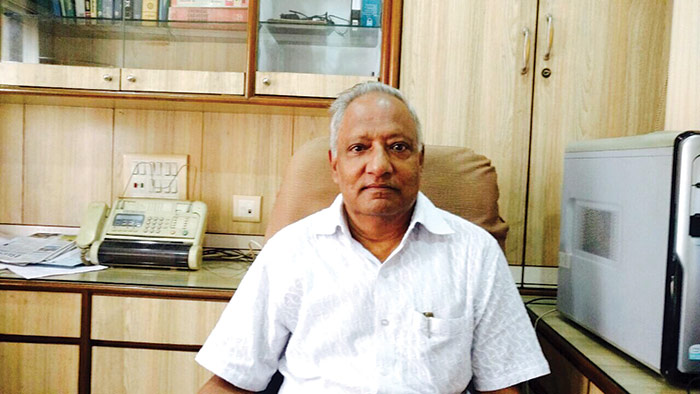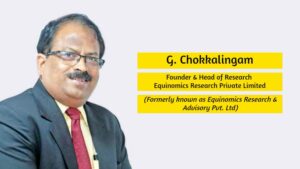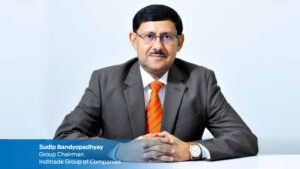Face to Face with Santosh Kumar Khemka
Santosh Kumar Khemka, a self-made millionaire and an investment veteran is a chemical engineer by profession, before he decided to focus full time on investing. For last 27 years he had been a very successful investor with several multi-baggers under his belt. In a conversation with Arun Mukherjee, he laid out his investment philosophy.
How you got interested in investing, and how you’ve evolved over time as an investor?
I was extremely fortunate that my parents imbibed very early into my thought process the value of good education and prudent behaviour. I was quite good at academics and ended up being a chemical engineer. In the early 90s, I started my journey into investing. Those days were different as the market was in its nascent stage. There was no internet and hence I couldn’t really catch up with the Buffetts, Mungers of the world as early as I would have liked to. While I was happy as an engineer, deep in my heart I always wanted to spend all my waking hours learning about businesses, valuing them and finding the next great wealth creator.
What’s your broad investment philosophy?
I have learnt over the years that each of us should first understand ourselves before we understand what style might suit our temperament. Right from the beginning, I knew that you either have to multiply your money 10x or it’s not worth the pain. My whole philosophy rests on doing things that I understand. I don’t think I can call myself a ‘value investor’ per say, since I don’t think there is a difference between value investing and growth investing. If you pay reasonably for growth, its value too! For me, the most important thing as an investor are: Doing things I understand and ignoring the rest; Being ethical in all aspects of investing and; Being independent in thought process and decision making.
What are some of the characteristics you look for while picking a stock?
I look for a few key things as follows: Is the business cyclical or secular growth? I strike out the cyclical. Second: Can the market cap be 10x the current value in less than ten years…and if yes, will the corresponding top line and bottom line at 10 x valuations look achievable and/or reasonable?; Is the business generating free cash flow?; Is the return on total capital greater than at least 2 times the risk free rate?; Is there a scope for ROE expansion? And will it play out in the next couple of years?
Can you name a stock which has turned out a multibagger for you? And why did you exit?
There are several stories. One that I can think of right now is Gujarat NRE Coke. In my early days, I found it at dirt cheap valuation at around Rs5 and exited after few years at Rs160. That has been a prominent stock for me as it gave me a huge confidence in my ability of sitting tight. Now in terms of exit, one should keep a stern eye on any sign of discrepancy. First sign came when Gujarat NRE stopped paying dividends. Then they kept on taking loans and became high debt company which was disproportionate to their assets. You must exit at the first sign of danger.
How can an investor improve the quality of his/her decision?
I suggest a very simple technique which can be helpful; whenever you take a decision (buy or sell), take your pen and paper and write down at least 6-7 points as to why you are taking that decision. Trust me; it will be extremely hard to do! When you start writing down things you will realise that you have not thought much about it in depth. When you write things down, you cannot escape or justify yourself later and are forced to face yourself. This will surely improve decision making.
How do you judge the management’s capacity to take the business to the next level, and whether they are honest?
Management should be hungry for growth, but at the same time be conservative to not bet the company during the good times. So essentially what we should look for is profitable growth that is self-funded. Management quality will be reflected in the numbers if one looks at the right things and compare the numbers within the same sector. As Buffet says, “When a management with a reputation for brilliance tackles a business with a reputation for bad economics, it is the reputation of the business that remains intact.”
What’s your advice to someone just starting out?
First, understand yourself well. Do you really want to be a value investor? Or you are doing it just because it’s currently the coolest thing in investing? There is no shortcut! There is no alternative to hard work and spending time in the market. So don’t expect that you will read 4-5 ‘recommended’ books and immediately become a ‘value investor’. Enjoy the process! If you find that you are forcing yourself to be a value investor, you will never become one!
Can you enumerate a few lessons from your journey?
Stay humble and respect the market. Unless you are super confident of the underlying business, it pays to respect the price. This is not to say that markets are efficient, but to say that unless you’re very well proficient with the business you can never say if the price is efficient or not. So the options are to either respect the price or learn enough about the business to say that the market is wrong. Keep your winners and cut your losers. I can’t repeat it enough.
Your recommendation for top 3 books on investing?
I think books create a base for your overall investment philosophy and thought process. Though it’s not enough, books can serve as a strong foundation on which a good investment process can be built. I would recommend: Common Stocks and Uncommon Profits by Phil Fisher; The Essays of Warren Buffett edited by Larry Cunningham; The Snowball: Warren Buffett and the Business of Life by Alice Schroeder; Tap Dancing to Work: Warren Buffett on Practically Everything by Carol Loomis and Poor Charlie’s Almanack: The Wit and Wisdom of Charles T. Munger.
Anything else you would want to say?
To sum up, I would like to use a quote of my guru Charlie Munger: “We read a lot. I don’t know anyone who’s wise, who doesn’t read a lot. But that’s not enough. You have to have a temperament to grab ideas and do sensible things. Most people don’t grab the right ideas or don’t know what to do with them.”






















